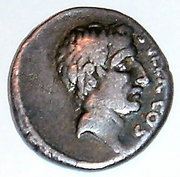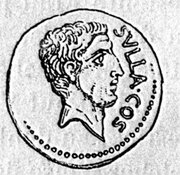Wars, civil unrest, military reforms, and political upheaval wracked ancient Rome before the turn of the millennium. As it transformed from a glorious republic into an overbearing empire, Rome bested Carthage, Macedon, Syria, and Numidia, and in turn paid an incredible price for war. Soon, the political machinations of the great generals Marius and Sulla changed the auspices of Roman ascension forever. Pax Romana does a fantastic job re-creating all of this, albeit with a handful of problems.
There are two game modes to choose from: strategic and political. The strategic game is a matter of expanding the republic as Rome's absolute ruler in one of six historical-campaign scenarios, including the Punic and Gallic wars and conquering Parthia as Julius Caesar. You expand your empire by forming alliances and conquering neighboring kingdoms. With over 100 nations, 500 regions, 40 military units, and hundreds of randomly calculated historical events, expanding the empire demands your complete attention.
The political mode is where Pax Romana deftly mixes deep strategy and roleplaying elements. As leader of one of Rome's six political factions, your goal is to gain power while expanding the empire in one of several historically relevant scenarios. Victory means getting elected to Rome's Consul for Life. Power is gained through political connections at the senate (bribes work well), exploiting urban and rural commodities, or even hosting a circus (keeping the citizenry content is crucial). Victory is tabulated via an extensive list of personal performances and collective objectives. For instance, if one of your faction leaders gets assassinated or pirates attack a trade route, you lose points.
Pax Romana's scramble of menus, action panels, maps, and stratagems can be overwhelming, and little is gained from consulting the manual or the game's well-thought-out but bug-ridden tutorial. The game also contains a swarm of annoying if not fatal bugs and lackluster enemy A.I. Fortunately, neither completely stifles the overall experience of ruling an empire.
With more spit and polish, Pax Romana could have been a cornerstone strategy game detailing a great civilization. Still, it contains features any die-hard—and patient—historical strategy gamer can get excited about.
Verdict: A decent primer for Rome: Total War.
Copyright © 2004 Ziff Davis Media Inc. All Rights Reserved. Originally appearing in Computer Gaming World.




